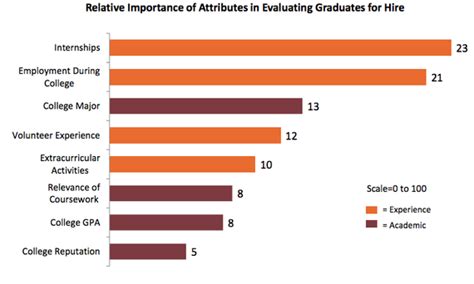Top Behavioral Skills Employers Value Most

When it comes to landing a job, technical skills and work experience are not the only things employers look for. In fact, many employers value behavioral skills just as much, if not more than technical skills. Behavioral skills, also known as soft skills, are personal attributes that enable individuals to interact effectively with others and succeed in the workplace. Here are the top behavioral skills that employers value most:
1. Communication
Effective communication is critical in any workplace. Being able to convey information clearly, listen actively, and write professionally are all important skills that employers look for. In fact, a survey conducted by the National Association of Colleges and Employers found that communication skills were the most important trait that employers looked for in job candidates.
2. Teamwork
Most jobs require working with others to achieve a common goal. Therefore, the ability to work collaboratively with others is a highly valued skill. Employers want to see that you can work effectively as part of a team, communicate your ideas, and be open to feedback.
3. Problem-Solving
Employers want to hire individuals who can solve problems on their own. Being able to identify issues, analyze information, and develop creative solutions are all critical skills in the workplace. Employers want to see that you can think critically and make decisions that benefit the company.
4. Adaptability
In today’s fast-paced work environment, things are constantly changing. Therefore, it’s important to be adaptable and flexible. Employers want to see that you can handle change and are willing to learn new things.
5. Time Management
Time management is an essential skill in any job. Employers want to see that you can prioritize tasks, manage your time effectively, and meet deadlines. Being able to juggle multiple tasks and stay organized is critical to success in any workplace.
6. Leadership
Leadership skills are highly valued in the workplace, even if you’re not in a management position. Employers want to see that you can take initiative, motivate others, and lead by example. Being able to inspire and guide others is an important skill in any workplace.
7. Creativity
Creativity is an important skill in today’s economy, where innovation is highly valued. Employers want to see that you can think outside the box, generate new ideas, and find innovative solutions to problems.
8. Emotional Intelligence
Emotional intelligence is the ability to understand and manage your own emotions, as well as the emotions of others. Employers want to see that you can handle stress, communicate effectively, and work well with others. Emotional intelligence is critical in any workplace, as it helps to build strong relationships and foster teamwork.
9. Work Ethic
Employers want to hire individuals who are reliable, responsible, and committed to their work. Having a strong work ethic means being willing to put in the effort to get the job done, even when it’s challenging or requires extra time and effort.
10. Positive Attitude
A positive attitude can make a big difference in the workplace. Employers want to hire individuals who are optimistic, enthusiastic, and willing to learn. Having a positive attitude can help you overcome challenges and build strong relationships with your colleagues.
Conclusion
Employers value behavioral skills just as much as technical skills. Being able to communicate effectively, work collaboratively with others, solve problems, and adapt to change are all critical skills in the workplace. In addition, having strong leadership skills, creativity, emotional intelligence, a strong work ethic, and a positive attitude can help you stand out from the competition and succeed in your career.
FAQs
-
What are behavioral skills?
Behavioral skills, also known as soft skills, are personal attributes that enable individuals to interact effectively with others and succeed in the workplace.
-
Why are behavioral skills important?
Behavioral skills are important because they enable individuals to work effectively with others, solve problems, and adapt to change. Employers value these skills just as much as technical skills.
-
What are some examples of behavioral skills?
Examples of behavioral skills include communication, teamwork, problem-solving, adaptability, time management, leadership, creativity, emotional intelligence, work ethic, and a positive attitude.
-
How can I improve my behavioral skills?
You can improve your behavioral skills by practicing active listening, seeking feedback, taking on new challenges, being open to change, and working on personal development.
-
Can behavioral skills be learned?
Yes, behavioral skills can be learned and developed over time. With practice and dedication, anyone can improve their behavioral skills and succeed in the workplace.
